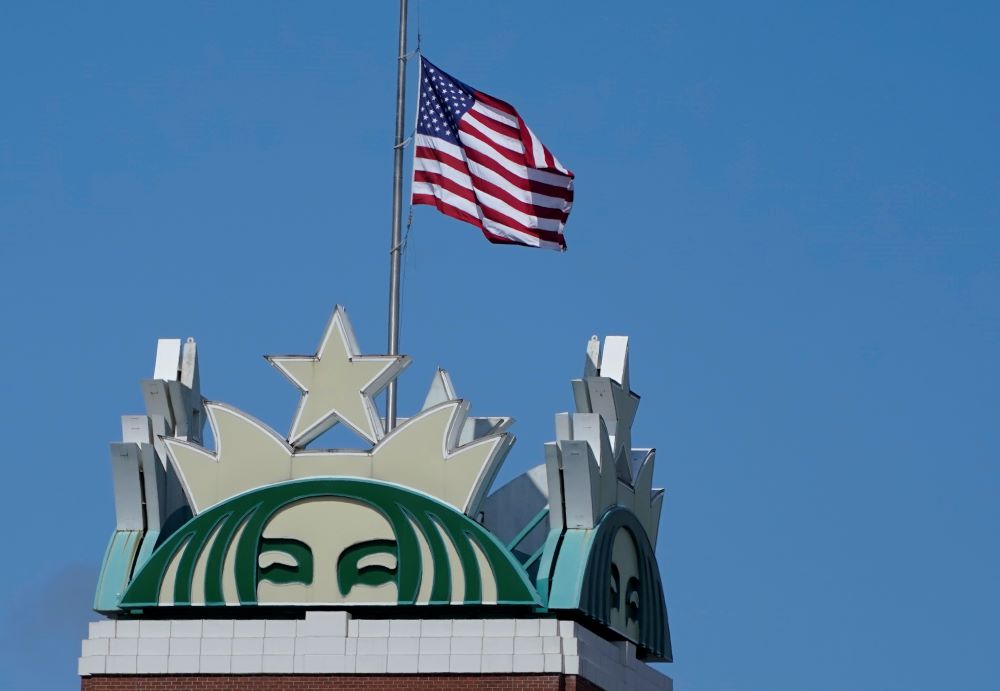
The U.S. flag flies above the Starbucks mermaid logo April 26, 2021, at the coffee company's corporate headquarters in Seattle. (AP/Ted S. Warren)
Some great news from the University of Notre Dame: Historian John McGreevy has been elected the school's provost. Whatever else the selection represents, and whomever the other candidates were, McGreevy is a careful and precise historian. He possesses the kind of mind that academics once aspired to, but which has been somewhat more difficult to find when ideologues, of both the left and the right, began taking over key academic positions. He is a scholar, first and foremost, and I couldn't be more delighted in the choice.
Workers at two Starbucks stores in Massachusetts, one in Coolidge Corner and the other in Allston, voted unanimously this week to form unions. If you attend an event at Boston College and need to overnight, chances are you will stay in Coolidge Corner and can head over to the store there to congratulate the workers. The union votes follow earlier votes to unionize at five Starbucks' locations in Buffalo, New York, and one in Mesa, Arizona. The march of worker solidarity can be heard across the land and it is thrilling. WGHB-Boston has the story.
In the New York Times, Paul Krugman makes the case that inflation is about to start coming down but that the economy will remain overheated. Attitudes about the state of the economy tend to harden in early summer, June and July, so Democrats need to hope Krugman is correct about inflation coming down, and that it will be soon.
Advertisement
In the BBC Music Magazine, how Felix Mendelssohn brought Bach's St. Matthew's Passion back to life. After many decades when the work was virtually unknown outside of Leipzig, Mendelssohn convinced his friend Carl Friedrich Zelter to loan him his Berlin choir and concert hall to perform the work on March 11, 1829. Ten arias and six chorales were cut from the performance for fear the audience would not be prepared for the almost three hours the complete work requires. But the King of Prussia and the philosopher Georg Wilhelm Hegel were in the audience and the masterpiece made its way back into the consciousness of music lovers where it has remained ever since.
I dislike the Easter Bunny because I detest attempts to commercialize Christian holidays, but the website Mental Floss had a fun story about the depictions of rabbits in the "drolleries" and margins of medieval manuscripts. There, the artists liked to depict a world turned upside down and so the rabbits are often the ones hunting the humans, holding hatchets or wielding swords. A thoroughly entertaining read.
In Architectural Digest, a look at 111 W. 57th Street, New York, the skinniest skyscraper in the world. Part of "Billionaire's Row," I find these pencil-like buildings do nothing for the New York skyline, which was once happily dominated by the art deco Chrysler and Empire State buildings, as well as some interesting modern additions like the Citigroup Center with its angled, white top and spindly legs, or the World Trade Center towers with their neo-Gothic arches.





